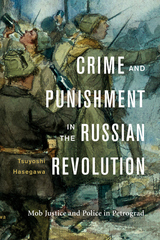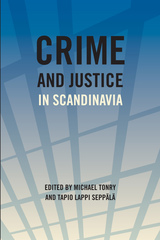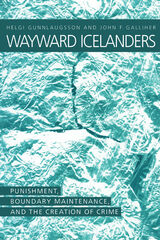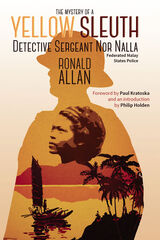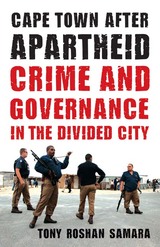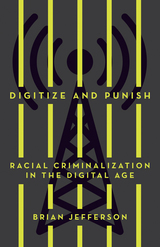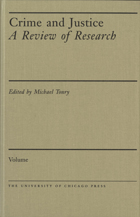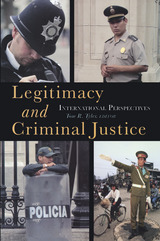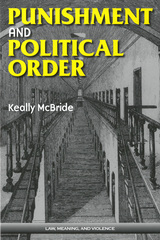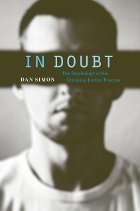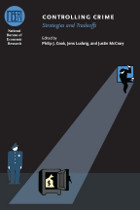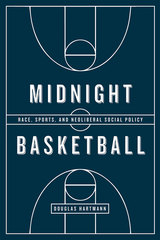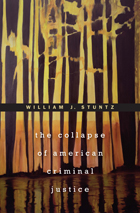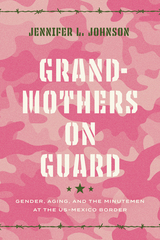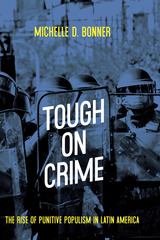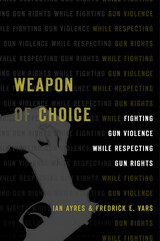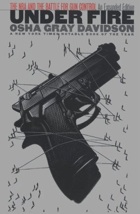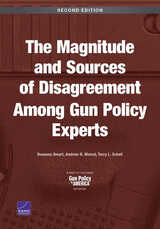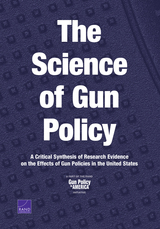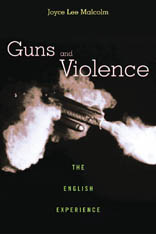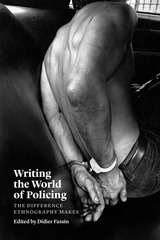The capstone to the career of one of the most influential legal scholars of the past generation.
-- Lincoln Caplan New York Times
[A] masterwork… [Stuntz] is the most forceful advocate for the view that the scandal of our prisons derives from the Enlightenment-era, procedural nature of American justice. He runs through the immediate causes of the incarceration epidemic: the growth of post-Rockefeller drug laws, which punished minor drug offenses with major prison time; ‘zero tolerance’ policing, which added to the group; mandatory-sentencing laws, which prevented judges from exercising judgment. But his search for the ultimate cause leads deeper, all the way to the Bill of Rights. In a society where Constitution worship is still a requisite on right and left alike, Stuntz startlingly suggests that the Bill of Rights is a terrible document with which to start a justice system—much inferior to the exactly contemporary French Declaration of the Rights of Man, which Jefferson, he points out, may have helped shape while his protégé Madison was writing ours. The trouble with the Bill of Rights, he argues, is that it emphasizes process and procedure rather than principles… In place of abstraction, Stuntz argues for the saving grace of humane discretion. Basically, he thinks, we should go into court with an understanding of what a crime is and what justice is like, and then let common sense and compassion and specific circumstance take over.
-- Adam Gopnik New Yorker
The scandal of criminal justice in the United States is by now a familiar one, its facts are well known, its causes extensively canvassed. So what can another book tell us that we don’t already know? A surprising amount, as it turns out… Most critiques of American criminal justice are by liberals and progressives, but Bill Stuntz—who died, aged fifty-two, shortly before this book was published—was a registered Republican, an evangelical Christian, and a revisionist thinker with a fondness for ‘law and economic’ perspectives. His viewpoint is refreshingly unpredictable and runs against the grain of conventional wisdom. It is a devastatingly critical account nevertheless. American criminal justice is, he writes, devoid of the rule of law, ‘wildly unjust’ and the ‘harshest in the history of democratic government.’… The Collapse of American Criminal Justice is a powerful indictment of the U.S. system, and a history of its unraveling. But its author insists that a legitimate, effective criminal justice might be attained if American constitutional democracy can be properly brought to bear.
-- David Garland Times Literary Supplement
The most important book about law in the United States published in the past thirty years. It is impossible to overstate the ambition of Stuntz’s undertaking… The Collapse of American Criminal Justice asks what went wrong and how it can be put to rights. Stuntz covers much ground and floats many reforms… Stuntz links the modern justice system to that of the nineteenth-century South. Today many criminally accused—especially minorities—continue to be judged by outsiders rather than one another, he argues, and this deprives the justice system of legitimacy… Rarely has one volume synthesized and revealed so much about American law. The scourge of racism in our justice system persists. Those who fight it must read this book.
-- Michael O’Donnell The Nation
The book is eminently readable and merits careful attention because it accurately describes the twin problems that pervade American criminal justice today—its overall severity and its disparate treatment of African-Americans. The book contains a wealth of overlooked or forgotten historical data, perceptive commentary on the changes in our administration of criminal justice over the years, and suggestions for improvement… Virtually everything that Professor Stuntz has written is thought-provoking and constructive… Well worth reading.
-- Justice John Paul Stevens New York Review of Books
This volume is exceptionally rich, insightful, provocative, and well-written. It is bound to have great influence on academic thinking, and perhaps in time on the criminal justice system itself… Stuntz’s book will repay much closer scrutiny than I can give it in a review… [An] important book.
-- Richard A. Posner New Republic
How has the American criminal-justice system become one of the most punitive in the world without providing a corresponding level of public safety? In The Collapse of American Criminal Justice, William J. Stuntz…offers a provocative big-picture answer… The overarching themes of The Collapse of American Criminal Justice deserve wide discussion, and the book as a whole can be rightly seen as the capstone to a distinguished legal career. Americans may debate whether our criminal-justice system has truly collapsed, but few would argue that it can’t be improved.
-- Paul G. Cassell Wall Street Journal
Stuntz’s book makes an eloquent, deeply reflective and historically well-rooted plea for a return to humane, fair and effective criminal justice. Every legislator, politician, judge, attorney, law student and lay citizen interested in understanding and improving our system should study this book. It will very deservedly be a centerpiece for any future discussion of criminal justice reform.
-- Frank R. Herrmann America
The capstone achievement of the most remarkable criminal justice scholar of the past generation. Although the book is a long parting lament, Stuntz thought that it still may be possible to undo much of the damage of the past century… If we were to restore local democracy in criminal justice, he argues; if we put more cops on the streets and fewer young black men in prison; if courts worried less about privacy and more about how police officers treat criminal suspects, the quality of justice might be a little less strained.
-- David Skeel Books & Culture
The Collapse of American Criminal Justice [is] a blistering critique of the ‘arbitrary, discriminatory, and punitive beast’ that our nation’s criminal justice system has become… Stuntz, who passed away earlier this year, was the Henry J. Friendly professor of law at Harvard University and one of the nation’s leading scholars of criminal law and procedure. His work was well-known for uncovering counterintuitive paradoxes at the heart of the American justice system, and Collapse is filled with them… Its diagnosis of our criminal justice system demands attention. Even more so its suggested remedies… Stuntz himself recognized that his suggestions would prove a hard sell in today’s political climate. He prudently opted for hope rather than optimism. But politicians, and the voters that elect them, would be wise to consider Stuntz’s account seriously, because what to do about our deeply flawed criminal justice system—well, that is a puzzle worth trying to solve.
-- Jay Wexler Boston Globe
[Stuntz’s] final book, The Collapse of American Criminal Justice, crowns an intellectual career that very few have equaled… William Stuntz [was] a scholar who perceived acutely the grievous mismatch that exists in America’s justice system between individual rights and criminal-justice machinery, between legal ideals and political institutions. The Collapse of American Criminal Justice rises to the complexity of the questions it raises, showing nuance, balance, and sophistication, and fulfilling the author’s extraordinary legacy even as it—alas—completes it. We owe William Stuntz a great debt. I am certain that the best way to pay this debt is by honoring his hope for a truly just criminal-justice system.
-- Paulo Barrozo Commonweal
A hugely important and timely work… I am immensely impressed by the candor and clarity of his critique of the American justice system, and find almost nothing to disagree with.
-- Scott Horton Harper’s blog
The cruelly early death of Professor William Stuntz cost us our deepest thinker about criminal law… His contribution, fully realized in this grand valedictory book, was to teach us to think creatively and critically about how we design the technology of government and to accept responsibility for its means and its products. In The Collapse of American Criminal Justice, Stuntz demonstrates that American criminal justice is a disaster. It is a horrendous mess of mismatched means and ends, of legal protections thwarted and misguided, of political demagoguery imposing brutal penalties on the undeserving, and of willful inefficiencies in the institutions created to protect both public safety and the public fisc… Like most of Stuntz’s work, Collapse is a profoundly thoughtful achievement of systems analysis. The breadth and scope of its policy proposals tempt us to read it as a blueprint of major design components needed for programmatic reform… Rather, we should read Collapse as an exhortation to, and model of, a way of thinking about criminal justice. This way of thinking requires astute analytic rigor in identifying the decisive choices in the building of legal institutions and a proper respect for the human frailty—individual, collective, and institutional—that produces the frequently awful unintended consequences of these choices.
-- Robert Weisberg Harvard Law Review
It’s a fascinating, passionate, compassionate, often brilliant book… It’s a work that deserves to have a significant influence on American criminal-justice thinkers from across the political spectrum… Stuntz documents serious problems, describes how they deepened, and points the way towards improvement. His book deserves a wide readership.
-- Eli Lehrer National Review
Smart and surprisingly provocative, The Collapse of American Criminal Justice is an instant classic. Stuntz sets aside the conventional wisdom and offers fresh and paradigm shifting analysis of crime, punishment, and politics. Every prosecutor, defense attorney, judge, and law maker in the country should take Stuntz’s powerful insights to heart. The Collapse of American Criminal Justice is indeed the achievement of a lifetime.
-- Paul Butler, author of Let’s Get Free: A Hip-Hop Theory of Justice
Bill Stuntz brought humanity, passion, and a broad intellectual vision to the study of criminal justice. His book tells the compelling story of the injustices created by the rise of discretionary power, the resurgence of discrimination and the impoverishment of local democracy. His analysis has implications beyond the shores of the USA; and helps us to see where a more hopeful future might lie.
-- Nicola Lacey, All Souls College, Oxford
The Collapse of American Criminal Justice is a searching—and profoundly disturbing—examination of American criminal law in action. William Stuntz’s posthumous study establishes that our main achievement has been the incarceration of millions, and in the process we have given short shrift to the minimal objectives of a democratic legal order—fairness and equality. This is a masterful work.
-- Louis H. Pollak, Senior Judge, U.S. District Court for the Eastern District of Pennsylvania
Bill Stuntz was our leading scholar of criminal procedure. Stuntz argues that much of what we think about American criminal justice is wrong. The system is neither too lenient nor too punitive, but too prone to both extremes, and the extremism is caused by too little democracy. Sweeping, learned, and bracingly original, Stuntz’s crowning achievement is a wonderful book.
-- David Alan Sklansky, Boalt Hall School of Law, University of California, Berkeley
This is a brilliant book by a supremely decent man. A great scholarly mind from the world of small towns, Stuntz has unique and profound insights into the perverse effects of centralized control of the criminal process of modern America. His vision of a better, more humane, more local justice offers more hope than the work of any scholar I know.
-- James Q. Whitman, Yale Law School

